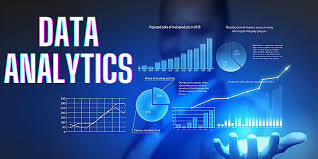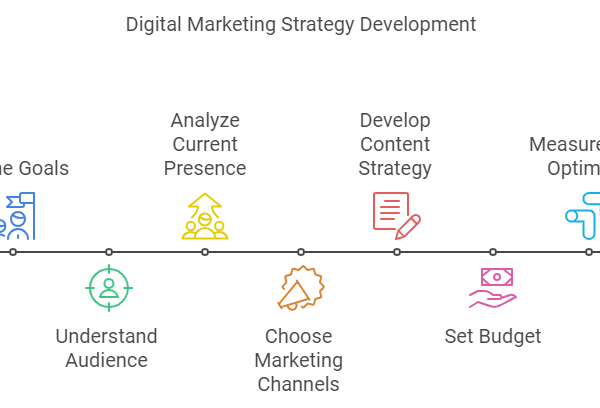
In today’s dynamic, data-rich business environment, companies are constantly generating vast amounts of information. Whether it’s customer interactions or internal operations, every action creates valuable data. However, without the right tools to interpret this information, its true value remains untapped. Data analytics serves as the gateway to unlocking this potential, enabling organizations to make informed, strategic decisions. These decisions lead to greater efficiency, improved customer satisfaction, and enhanced profitability.

data analytics
The Importance of Data Analytics in Business
Data analytics involves the collection, processing, and analysis of data to reveal actionable insights. These insights are vital for helping organizations understand market trends, optimize operations, and anticipate future challenges. In a fast-paced business world where adaptability is essential, data analytics empowers leaders with the real-time information necessary to make quick, informed decisions.
Here’s why data analytics is key to smarter decision-making:
Data-Driven Decision Making (DDDM)
Data-driven decision making (DDDM) prioritizes evidence-based strategies over intuition or guesswork. With the help of data analytics, businesses can support their strategies with concrete data, minimizing the risks tied to decision-making. For example, instead of making assumptions about customer preferences, companies can analyze real-time purchasing behavior to design targeted marketing campaigns.
Gaining Insights into Consumer Behavior
Data analytics provides a deep understanding of consumer behavior. Businesses can gather and examine data from various sources, such as website visits, social media activity, and transaction history, to gain a complete picture of their customers. This knowledge enables companies to predict customer needs, offer personalized services, and improve the overall customer experience. For instance, Amazon’s recommendation system uses data analytics to suggest products based on previous searches, enhancing customer satisfaction and driving sales.
Improving Operational Efficiency
Data analytics is instrumental in enhancing operational performance. By evaluating data related to production, supply chains, and workforce management, businesses can spot inefficiencies and improve processes. In manufacturing, predictive analytics can forecast equipment breakdowns, allowing for preventative maintenance and reduced downtime. Retailers, on the other hand, can use analytics to manage inventory by studying demand patterns, ensuring they stock the right products when needed.
Financial Forecasting and Risk Mitigation
Data analytics is invaluable for financial planning and risk management. By analyzing historical financial data, companies can predict future revenue trends, manage budgets more effectively, and make better investment decisions. Additionally, analytics helps identify potential risks—such as market volatility or loan defaults—allowing businesses to take preventive actions. Financial institutions, for example, use analytics to evaluate credit risk by analyzing a customer’s financial history and transaction behaviors.
Optimizing Marketing Strategies
Data analytics revolutionizes marketing by helping businesses refine their efforts. By analyzing the performance of campaigns across various channels like email, social media, and online ads, companies can optimize their marketing strategies. This data-driven approach enables businesses to allocate resources more effectively, ensuring that every dollar invested in marketing delivers the best possible results.
Predicting Future Trends
While traditional analytics focus on analyzing past performance, predictive analytics forecasts future trends. By recognizing patterns in historical data, predictive models help businesses anticipate future market conditions, consumer behaviors, and operational challenges. Retailers, for instance, can use predictive analytics to adjust their stock based on seasonal demand patterns, while healthcare providers can predict patient outcomes and tailor treatments accordingly.
Real-World Examples of Data Analytics in Action
Data analytics has had a transformative impact across various industries, driving smarter decision-making in diverse fields. Let’s take a closer look at how different sectors use data analytics:
Retail
Retailers use data analytics to fine-tune inventory management, pricing, and loyalty programs. By analyzing purchasing behaviors, retailers can predict demand and adjust pricing dynamically based on market conditions. Data analytics also aids in customer segmentation, helping businesses design personalized marketing campaigns that increase customer retention and lifetime value.
Healthcare
In healthcare, data analytics improves patient care, streamlines hospital operations, and reduces costs. By analyzing patient data, healthcare providers can identify disease trends, predict readmissions, and personalize treatment plans. Data analytics also supports the development of personalized medicine, where treatments are tailored to a patient’s unique genetic and medical profile.
Finance
The finance sector relies on data analytics for fraud detection, risk management, and investment strategies. Financial institutions use analytics to flag suspicious transactions and detect fraud in real time. Moreover, data analytics plays a key role in assessing credit risk and forecasting market trends, allowing financial institutions to make informed investment decisions.
Manufacturing
Manufacturers leverage data analytics to enhance production efficiency, minimize downtime, and improve product quality. By analyzing sensor data from equipment, manufacturers can predict when a machine is likely to fail and schedule maintenance before disruptions occur. This predictive maintenance approach helps reduce costs and improve operational efficiency. Supply chain management is also optimized through analytics, reducing delays and bottlenecks.
E-commerce
E-commerce platforms like Amazon and Shopify heavily rely on data analytics to personalize the shopping experience and increase sales. By tracking customer behavior, such as browsing and purchasing habits, e-commerce companies can make personalized product recommendations. Data analytics also supports dynamic pricing strategies and real-time inventory management.
Challenges in Implementing Data Analytics
Despite its clear benefits, adopting data analytics is not without challenges. Businesses must address the following hurdles to fully leverage the power of analytics:
Data Quality
The accuracy of data analytics relies on high-quality data. Incomplete, inaccurate, or outdated data can lead to poor decisions. Businesses need to implement rigorous processes for data collection, cleaning, and validation to ensure reliable insights.
Data Security and Privacy
As companies increasingly depend on data, they also bear the responsibility of ensuring its security. Businesses must comply with regulations such as GDPR and implement strong cybersecurity protocols to protect sensitive data from breaches and misuse.
Talent Shortage
The demand for data analysts and data scientists has surged, but there is a shortage of skilled professionals in the field. To overcome this, businesses can invest in training programs for employees or collaborate with educational institutions like Uncodemy to equip their workforce with data analytics expertise.
Integration with Legacy Systems
Many businesses operate with outdated systems that were not designed for modern data analytics. Integrating these systems with new analytics tools can be complex, requiring investments in new technologies and IT infrastructure upgrades.
Conclusion: Embracing Data Analytics for Better Decision-Making
In today’s competitive market, leveraging data analytics is no longer optional—it’s essential. Businesses that use data analytics can make smarter, faster, and more informed decisions, leading to superior outcomes. Whether it’s analyzing customer behavior, optimizing operations, or forecasting future trends, data analytics unlocks the full potential of a company’s data.
For those looking to build expertise in this crucial field, the best data analytics course in Thane, Mumbai, Navi Mumbai, Delhi, Noida, and other locations across India. These programs, such as those offered by Uncodemy, equip professionals with the skills and knowledge to harness the power of data analytics in real-world scenarios, helping businesses thrive in an increasingly data-driven economy.
By addressing challenges like data quality, security, and the talent gap, businesses can fully embrace data analytics as a driver of success. With the right strategies and tools, data analytics will continue to play a central role in shaping smarter business decisions, paving the way for innovation and growth.











